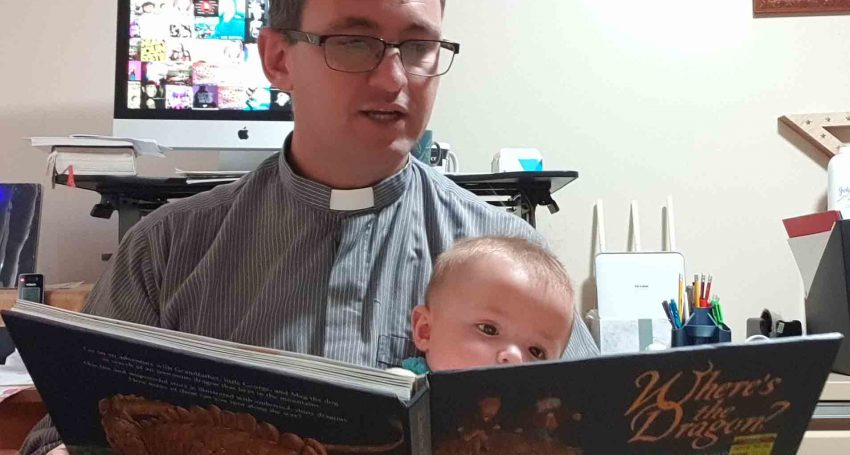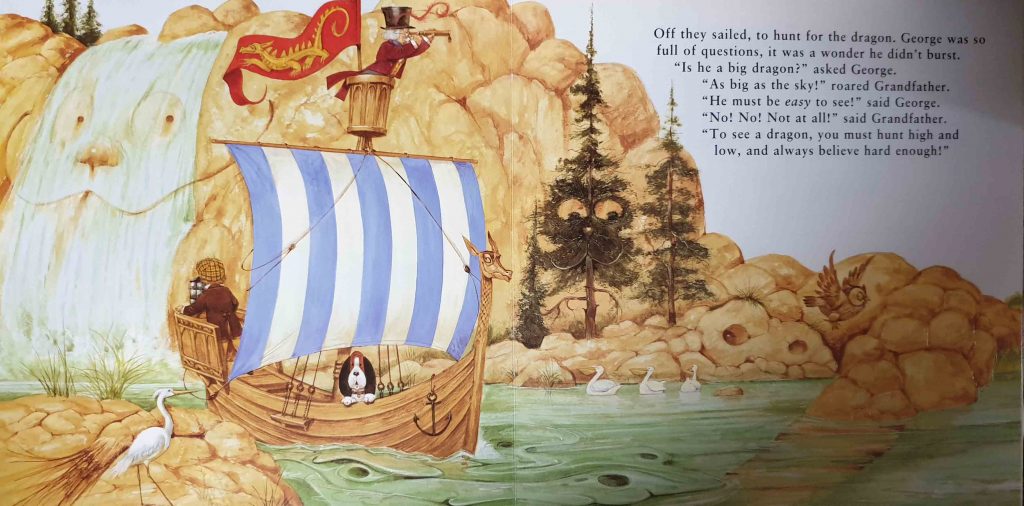Where’s the Dragon?
Reflections
“Being a person of faith in no way means that we see things that are not there, but rather the way in which we understand the things that are there is changed by our faith,” says The Rev’d Andrew Schmidt

One of the joys of having children is the delight in discovering new books, or even old books in a new way. I have a little collection in my office of books that will travel with me long after my own children are finished with them. Each has spoken to me in a particular way.
A few years ago my wife, Lousie, tracked down a copy of Where’s the Dragon? by Jason Hook. As with many children’s books a significant part of the genius in this one in the illustrations.
Advertisement
The basic premise is that the protagonist, a young George, and his grandfather have gone in search of dragons.
What occurs is that George is able to see dragons everywhere, and his grandfather is not able to see them, as he is blind to their presence. It is important to note that in the illustrations, and even in the text, there are two ways of seeing that are both legitimate. Grandfather sees what is there but misses the depth of the illustrated world. George, however, has the experience of seeing both the surface world and a richer world that is inhabited by dragons, many of who are characterised by joyous faces, hidden in the mundane, such as a rocky peak and waterfall.

Pages from Where’s the Dragon? by Jason Hook
For me this book is a wonderful analogy for the way faith changes your perspective on things. Being a person of faith in no way means that we see things that are not there, but rather the way in which we understand the things that are there is changed by our faith.
This, then, is one way of understanding conversion, which is something Christians are called to enter into continually. Conversion is changing our minds and hearts so that our eyes would see more clearly as God sees, and in seeing more clearly we would be provoked into leading more Godly lives.





